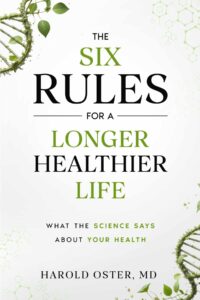What is Autism?

What is autism? It depends.
How can it depend? In Medicine, definitions change rapidly. According to the National Institutes of Health (NIH), “Autism spectrum disorder is a neurological and developmental disorder that affects how people interact with others, communicate, learn, and behave. Although autism can be diagnosed at any age, it is described as a “developmental disorder” because symptoms generally appear in the first two years of life.”
In medical school, we never heard of “autism spectrum disorder (ASD).” In fact, the Diagnostic Statistical Manual of Mental Disorders (DSM-5) did not use the term until 2013. I am not questioning the term. I don’t have nearly enough experience or knowledge of autism even to comment. This post is about definitions.
The definition of autism has changed in the last thirty years to the point that there is a new name. Now, you can say “on the spectrum,” and people know you are talking about the autism spectrum. A spectrum is “a continuous sequence or range,” according to Webster. Why is this important? Historically, people with autism were usually unable to care for themselves. Most were nonverbal and needed constant care. This severe form of ASD still exists, but now, many or most children and adults affected with ASD have milder forms.
These milder forms of ASD existed in the past, but medical professionals and laypeople did not identify them as autism. The problem is that those with the severe forms and the mild forms are now often grouped together. I have a friend who has been diagnosed with a milder form of autism. He has difficulty receiving adequate medical and dental care because the practitioners assume he won’t be able to follow instructions and care for himself. On the other hand, those with severe forms can’t care for themselves and may also not receive the care they need.
Again, I have no opinion on whether autism spectrum disorder is the correct name for people with mild forms of the condition. Perhaps there will be another name at some point. What matters is that when we try to study the condition, we must research and discuss the same thing. There is much discussion about the increase in diagnoses of ASD. Some blame vaccines, food dyes, or other environmental factors. I don’t know whether the actual rate of autism is increasing. I only know that there is a significant increase in diagnoses. It is critically important that we determine whether all forms of ASD are growing in numbers or whether only the rate of one type is increasing. Once we know whether the number of affected people is growing, we can study the causes.
Autism is not unique in this definition problem. Pneumonia is a straightforward condition—an infection of the lung. But there is a broad spectrum. I had pneumonia in residency. It was caused by Mycoplasma pneumoniae. I had a constant cough and a low-grade fever. I missed no work and was much better after two days of oral antibiotics. Nationwide, pneumonia is a leading cause of death, but I was never at any risk. It would be important if you could cut Mycoplasma infections by ten percent, but it would be nowhere near as important as preventing the really dangerous causes of pneumonia.
The same holds for autism. I don’t believe that vaccines cause autism, but I don’t have enough information to rule it out completely. We have to agree on what autism is before we decide if vaccines have an effect. It is possible or even likely that not all children diagnosed with autism spectrum disorder actually have the same condition. Perhaps various forms of autism have different causes. I hope we can eventually prevent all cases of autism and similar disorders. Before we can do that, we first have to agree on what autism is.
The need for a good definition is true in everything. Some scientists argue that body mass index (BMI) is not a good definition of obesity. (See my book, The Three Rules to Lose Weight and Keep It Off Forever). At least it is better than the current definition of autism. Lack of a good definition is also a problem outside of Medicine. AI is a good example. People ask me whether I am worried about AI. Before I answer, I need to know what they are talking about. I am not at all worried about the AI Grammarly uses to rephrase a clunky sentence. I worry some about rogue AIs, like the one in The Terminator. I would love to meet an AI like Data.
What is autism? I don’t know. I don’t believe anyone knows. We need to decide what autism is before we come close to determining whether vaccines and other environmental factors are a cause.

